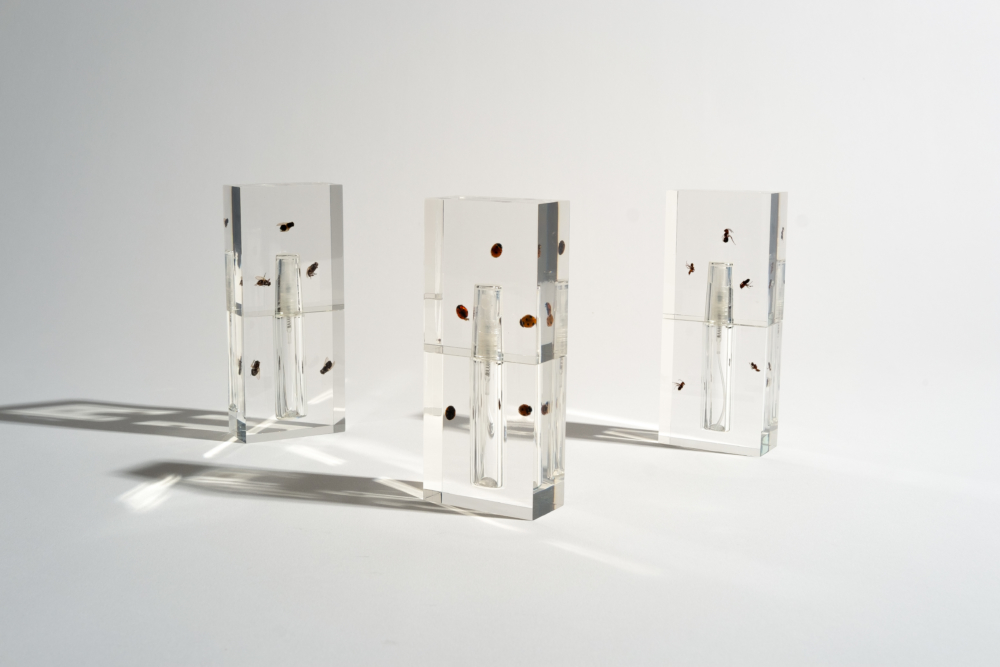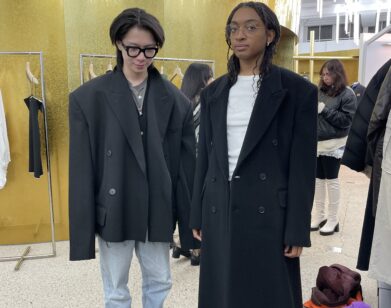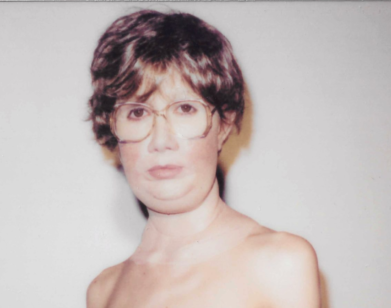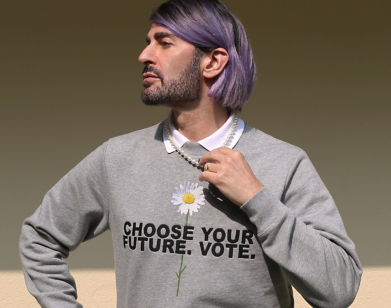Anicka Yi’s Perfumes Contain Notes of Yuzu, Patchouli, and Ancient Egypt

Anicka Yi thinks of making perfumes as something of a philosophical exercise. Questions of analogy, narrative, composition, and chords went into the creation of Biography, her new collection of perfumes that aim to challenge historical understandings of femininity, as well as those of commercial fragrances. Produced with perfumer Barnabe Fillion and Dover Street Market, the collection pulls together questions of identity and history with the concept of personal hygiene, and how scents serve as a crucial, if understated role in how we move through the world. “What it means to be female today can be pretty radically perceived compared to what it means to be female in ancient Egypt or in the late 1960s in Japan or Lebanon,” explained Yi. “I think that every generation has to redefine itself based around its values, but also around the technologies that is shaping often these values. We need to accommodate this kind of thinking even in the way we approach even our physical hygiene.” We asked Yi to break down the figures behind the fragrances, and why we should all get back to our sensorial roots and start thinking with our noses.
———
Shigenobu Twilight – Volume¹
Grounded by a woody base of cedar, the fragrance combines top notes of yuzu fruit, shiso leaf and black pepper as well as heart notes of thyme and frankincense.
“Fusako Shigenobu is a late 20th century figure who was a radical Marxist student at the Tokyo University who also had a day job working at the Kikkoman soy sauce factory. She became the founder and leader of the Japanese Red Army and went into exile in Lebanon for 30 years. The legend has it that Fusako was trying to smuggle herself back into Japan through the airport in Osaka, disguised as a man. She had on a black turtleneck and a fake mustache, but apparently she had a very distinctive way of unfurling her cigarette smoke, and someone recognized her and nabbed her. Now she’s serving 20 years in a Tokyo hospital prison.
I thought about this notion of exile or statelessness, and this longing for where you’ve been and where you are. Back they didn’t have the internet, there was no Amazon Prime, so it’s not like she just order some yuzu or shiso leaf. To be cut off from your motherland, so to speak—what that does to your psychic, emotional, but also metabolic space, because you have to imagine that she was probably eating all kinds of food that were deeply foreign to her microbiome and her sensorial taste world. That, to me, is in and of itself deeply rich and fascinating.”
———
Radical Hopelessness – Volume²
Piquant top notes of pink pepper, juniper, and cardamom, as well as heart notes of iris and Angelica root are smoothed by a lush sandalwood and patchouli base.
“Hatshepsut was an inspiration for this scent. She was one of the very first figures that was publicly, in portrait, portrayed as a male. She was in drag—she had the goatee, and the sideburns, because her constituency wouldn’t accept that they had a female king, wouldn’t accept that a woman was ruling as a leader, and there was a whole erasure campaign around her.
What I’m trying to do with the series is challenge identity altogether, and what we think of ourselves in this kind of loose container or vessel of identity. I think that there’s perhaps too much of a premium or pressure on producing your identity, especially in social media and on the internet, as these kinds of avatars that have emerged over the last 20 or 30 years. We really need to be careful about how we rely too much on identity, because it’s an illusion.“
———
Beyond Skin – Volume³
Dark, fleshy base notes of suede and myrrh are complemented by an earthy, herbal core of indole and rose, while spicy, animalistic top notes of civet, cumin, and cloves are set of by a hint of red seaweed.
“This is a fictional character based on an artificial intelligent character. The idea is that the A.I. entity could be this open system, this algorithm that can connect all the female stories, all the female experiences. This is a scent that is meant to harness all the other fragrances as a way to embrace and look towards the future.
“We don’t really know how scent receptors work. It’s hard for us to even agree how to measure smell. In the last, let’s say 500 years, we have privileged sight over our sense of smell, and that’s why we know so much more about vision. I think that that’s deeply problematic for me, because we as human beings, as mammals, we experience reality through our sensorium. You can’t really cut off being in a room and not being able to smell something. To try to isolate one sense seems kind of unnatural, and also quite detrimental to our experience and perception of reality. I would say that that olfaction and smell is part of the physical intelligence that we’re endowed with. Why would we want to ignore or repress that when we should be amplifying it?”






